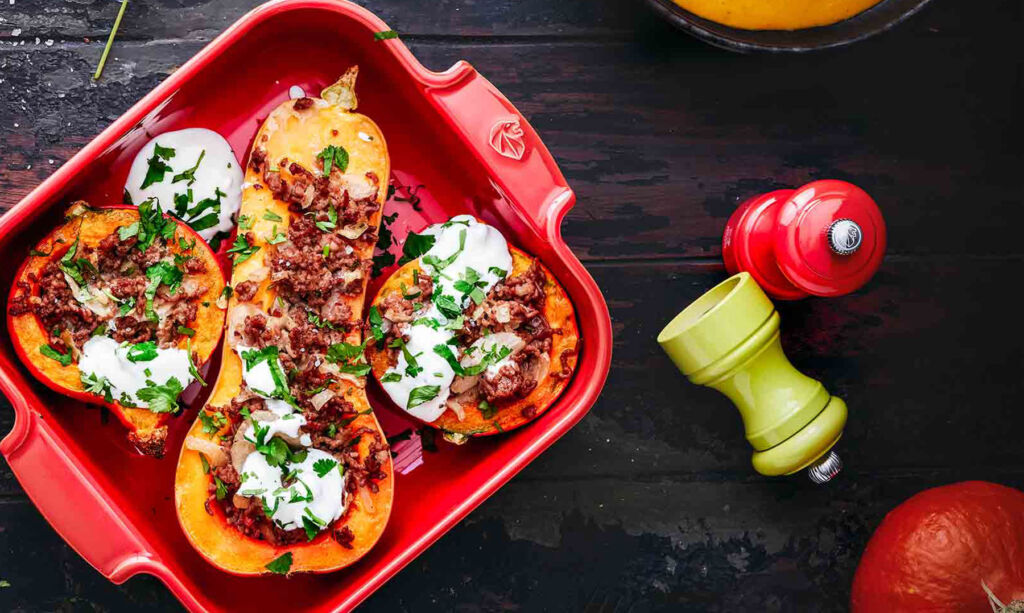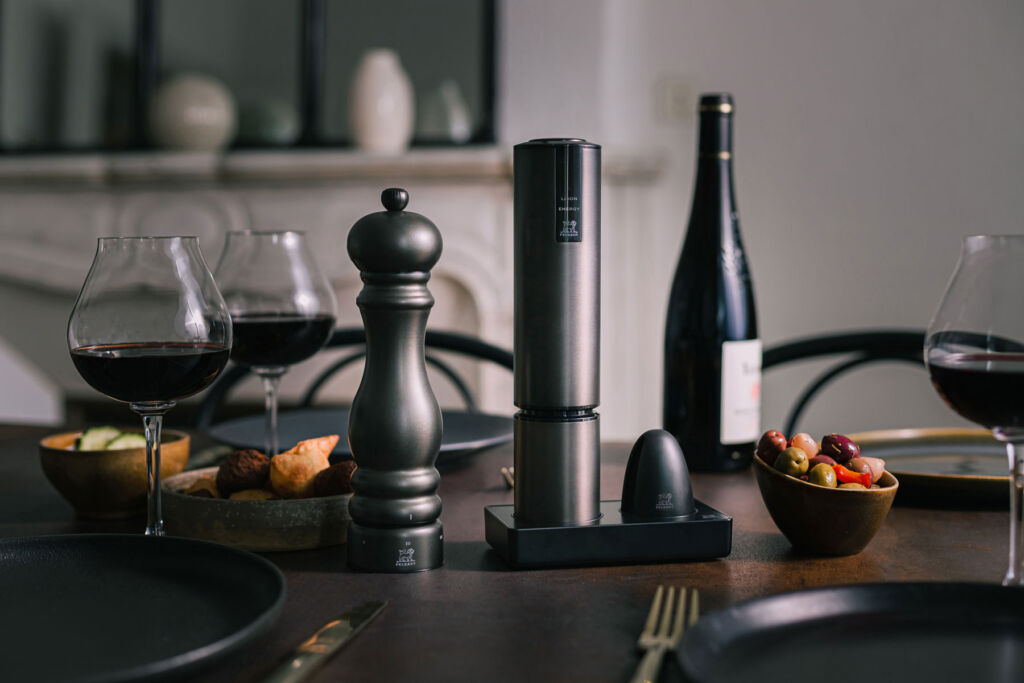

The Peugeot name holds a much-deserved place amongst the historical greats of French commerce. It is known the world over; however, long before it became synonymous with motor vehicles, it plied its trade, successfully manufacturing various products, including ones for kitchens. Incredibly, it continues to do this today, and in this feature, we look at 200+ years of excellence from Peugeot Saveurs.
The Peugeot Family
When you see the name Peugeot, ninety-nine times out of a hundred, images of cars will spring into your mind, with the odd exception likely being a bicycle. However, like Lamborghini, who made its name in the world of agricultural machinery and BMW, whose roots lay in the aviation sector, the Peugeot name was ‘literally’ forged in an industry it is slightly less well known for today.
In 1810, more than a century before Henry Ford’s mass-produced Model-T car came to global prominence, two brothers, Jean Pierre and Jean Frédéric Peugeot, started a business from a mill they had inherited.
Early in the 19th century, the brothers and their families converted the mill into a fully-fledged steel mill, plying their trade making grinding equipment, hand tools, ladies’ fashion accessories and spectacle frames. Over time, the family-owned firm also moved into bicycle production (1882), with which they had enormous success.
By 1892, the company, headed by Armand (the grandson of Jean Pierre Peugeot), was called Les Fils de Peugeot Frères, and it had added car manufacturing to its product portfolio. Seeing huge potential in the market, Armand Peugeot felt that an increase in production was needed, but his cousin Eugène Peugeot did not want to commit the company to what he felt was an unnecessary investment.
So, on the 2nd of April 1896, Armand decided to set up his own company and called it Société Anonyme des Automobiles Peugeot.
Although two of the family had parted ways, there was some good news. In February 1910, Armand agreed to merge his company with Eugène as he was without an heir. When Armand left his role as the company’s head, Peugeot had become France’s largest car manufacturer.
As you can see, Jean Pierre and Jean Frédéric’s descendants have helped the world to move in different directions seamlessly and, in doing so, made their family name one that is known the world over.
Even with all those incredible achievements, something that hasn’t changed is the family’s historical manufacturing roots, which can still be seen and experienced today through Peugeot Saveurs.


Peugeot Saveurs
Peugeot Saveurs is based in Quingey, France. From its factory, it manufactures, designs and develops bakeware and its iconic salt, pepper and coffee mills. Although the company was born from humble beginnings, it now exports its wares to more than eighty countries and has been awarded the Entreprise du Patrimoine Vivant (which denotes it as a Living Heritage Company), a recognition bestowed by the French State.
The company continuously seeks ways to advance its eco-friendly credentials and social responsibilities. Each of its wooden salt and pepper mill grinders, which we were fortunate to have been sent a set, is assembled locally at its site in Franche-Comté and is made using a specific wood from PEFC™ certified European forests. The company doesn’t stop there when it comes to looking after the environment, as all of the wood chips and sawdust are collected and recycled, and solvent-free paint is only used for finishes.
To give us a more authentic, hands-on feel, the company sent us its Carbon Line Salt and Pepper classic grind mill set was sent to us, which came with a compact metal funnel.
Although Peugeot still manufactures the “granddaddy” of all pepper mills, the Z Model, which first appeared in 1874, our mills were more contemporary in their styling, sporting fine-striated aluminium bodies with a wooden top. On the side of both mills is the iconic Peugeot lion emblem, and within the rather smart-looking black box were sachets of Tan Hoi and Cristaux de sel blanc, ready for grinding.
As you would expect, the grinders performed flawlessly, and even if there were any issues, the good news is that the steel mechanisms in both mills come with Peugeot’s lifetime guarantee.
Comparing the individual merits of a grinder/mill is not straightforward. In the main, our experience extends to the common-or-garden plastic grinding mills purchased from most supermarkets, and earlier this year, we were horrified to find pieces of broken plastic from grinding mechanisms in our food. As you’ve undoubtedly guessed, there were no issues with the Peugeot Saveurs salt and pepper mills, and for that, our teeth thank you.
Although Peugeot Saveurs is probably best known for its mills, thanks in no small part to its long and storied history, it also happens to be an expert in the field of ceramic bakeware.
Baking has been one of my passions over recent years, and my colleagues on the editorial team and I have written extensively on the subject, encouraged in no small part by the extra time we all found at our disposal after a certain event came to global prominence at the beginning of 2020.
As I mentioned earlier, Peugeot manufactures its kitchen bakeware at its Qunigey factory. Its primary ceramic collection is called Appolia and comprises a range of glazed dishes. All of its dishes have been designed with homogenous heat induction in mind to ensure even cooking, not burnt edges or raw middles.
The dishes, which sport a thick, shiny glaze, carry an embossed lion logo on their face, and on their rear, etched deeply into the base, is the Peugeot France lion logo standing proudly on an arrow.
The manufacturing of the bakeware involves an extremely thorough process, which can be seen in this ‘Video‘. According to Peugeot, the manufacturing process allows the ceramic bakeware to be moved directly from a freezer into a preheated oven, which is very impressive but not something we felt we needed to test for ourselves. The ceramic bakeware range is also dishwasher compatible and passed the ‘burnt tomato’ test in an independent laboratory.
Each of Peugeot’s ceramic dishes is made using a mixture of clay, kaolin and feldspath, which provides a surprising amount of shock resistance, and they also seem pretty immune to scratches; however, only time will tell.
As many of our regular readers will know, we like to know which chemicals are used in any cookware and bakeware manufacturing processes. Although we don’t have the full details of what goes into Peugeot Saveurs’ ceramic bakeware products, we can confirm that they are made with cadmium-free enamel, and the company states that they meet the “Most Stringent”, environmental and food regulations.
Overall, we’ve been delighted to learn Peugeot Saveurs’ incredible story and experience some of its high-quality products, which have not only delighted and impressed us but also seem to have garnered other fans in the form of some of the planet’s most respected chefs.
Peugeot Saveurs – Where and how?
Full details of the current range of products and the option to make a purchase is via https://uk.peugeot-saveurs.com/. The Appolia bakeware range comes with a 10-year warranty, and the mill mechanisms come with a limited lifetime guarantee. Peugeot Saveurs is currently offering free delivery on all orders over £75 and free returns (allow up to 7 working days for delivery).
In addition, Peugeot Saveurs also has an open invitation to join the spice revolution via its free newsletter, which includes recipes, food ideas and exclusive offers.
Read more lifestyle news, reviews and features in our dedicated section.
